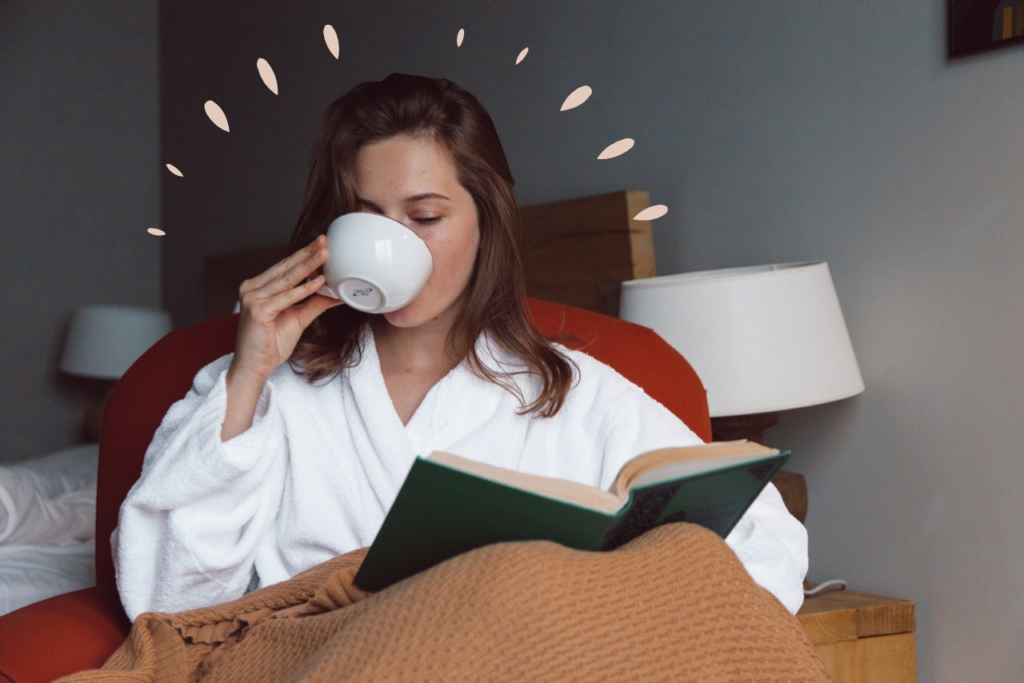For those nodding off at the back after another night of interrupted sleep, you might want to snap-to-grid and pay attention to the following rhetorical questions….
Do you find it next-to-impossible to sleep right through the night? Do you wake up at 4am and struggle to nod off again? Do you spend most of your time between the sheets tossing and turning? Does your mind start racing as soon as your head hits the pillow?
If those scenarios sound like we’ve taken up a position in your wardrobe and have been spying on you, then firstly, rest assured; we haven’t. But more importantly, you’re not alone.
So many of us suffer from disturbed, punctuated sleep, and whilst insomnia is a major problem for so many in the UK, this prevalence also leads to publicity. And with publicity comes shared solutions to the problem of interrupted sleep.
Today, we’re drilling down into the absolute essentials; here are 3 helpful tips for achieving uninterrupted sleep.
Choose The Right Mattress Type
If you’re having sleepless nights and achy mornings, then it might be time to consider not only how you’re sleeping, but what you’re sleeping on.
A good mattress can completely transform your life (hyperbole intended). Sleeping on a bad mattress, on the other hand, can make it a complete misery. Indeed, anyone who has slept on a sofa bed with springs digging into their back can attest to the fact that choosing a type of mattress which suits you is an important step towards getting uninterrupted sleep.
So, how do you know if your mattress is past it? Does it have lumps and bumps? Are you rolling into the middle or into your partner? Does it squeak and creak every time you move? Can you feel those springs diffing in your back?
Nope, these rhetorical questions aren’t designed to cure your insomnia, but rather, to focus your mind. If you answered yes to any of the above, then you probably need a new mattress.
There are several factors to consider here, including, support, comfort, contouring and the quality of materials used. Then, there’s mattress material to consider, too; do you want memory foam, latex foam or an innerspring mattress?
You also need to take your personal preferences into account. If you suffer from joint or back pain, you need a mattress type that supports you and relieves pressure points along your joints.
You also need to consider what type of sleeper you are; should you like to sleep on your stomach, then perhaps a hybrid mattress that offers minimum sinkage and is designed to support the midsection would be a good option. If you’re a side sleeper, then a memory foam mattress is a popular choice as it contours to the shape of your body and delivers strong levels of pressure relief.
With such a slew of factors to contemplate, this is a decision you should probably sleep on…

What Can You Do Before Bed?
There are a lot of things that you can do before bed to help you get a good night’s sleep. A warming cup of chamomile tea, reading a good (though not too invigorating) book and having a warm bath can all help you nod off, sure, but the timing of your bedtime routine is equally as important.
It’s vital to try and go to bed at the same time every night and keep your wake-up time consistent, too. Since our bodies follow a daily circadian rhythm, waking and getting up at vastly different times throws it out of whack, which does your chances of uninterrupted sleep no favours whatsoever.
Some sleep supplements can help here, too. The best supplements for sleep usually feature natural ingredients that are known for their calming and sleep-inducing properties. For instance, valerian root is a popular herbal remedy that has been used for centuries to address insomnia and anxiety. It is believed to work by increasing the levels of a neurotransmitter called gamma-aminobutyric acid (GABA) in the brain, which has a naturally calming effect.
Melatonin is another supplement that is frequently used to improve sleep quality. Melatonin is a hormone that your body produces naturally as part of regulating your sleep-wake cycle. Supplementing with melatonin can be particularly beneficial for individuals who have disrupted circadian rhythms, such as shift workers or those experiencing jet lag. Magnesium and melatonin could also help.
If you’ve tried all of the usual sleep interventions to no avail, then perhaps it’s time to think outside the box. Consider watching some ASMR videos or listening to white noise to help you nod off and stay, erm, nodded off.
For those not familiar with the concept, ASMR stands for autonomous sensory meridian response, and is a phenomenon that causes people to feel tingling sensations in the head and spine in response to certain triggers.
But how does it help you sleep? Well, watching ASMR videos may help reduce your heart rate, and as Glamour Magazine explains, “the reduced heart-rate and relaxing effect on the brain can help relieve insomnia, and a large proportion of the online community use ASMR to help them sleep”.
There are a lot of different ASMR videos available on YouTube, and they can be extremely helpful for getting to sleep. Some of the most popular ASMR triggers include soft speaking, gentle whispering, crinkling sounds, and slow movements.
If you’re having trouble falling asleep, watching an ASMR video may be just what you need to drift off.

Plan Your Bedroom Layout And Furniture Choices
When it comes to getting uninterrupted sleep and achieving balance and harmony in your bedroom, choosing the right furniture is key.
One important consideration is the overall layout of your bedroom, as furniture placement can have a significant impact on how you feel when you’re in bed.
Consider, then, the feng shui of your bedroom. A bedroom designed with feng shui in mind is all about creating a peaceful and balanced environment that promotes a good night’s sleep. In fact, we’ve written a whole article on the different ways to feng shui your bedroom, IDEAL for adopting a new approach to getting a good night’s sleep here. Do check it out.
Another key factor to consider in terms of the aesthetic of your room is its colour scheme. Consider restful greens, adept at soothing a stressed mind, soothing blues and lullaby lavenders, for shades that immediately promote a sense of calm.
Other elements that promote relaxation and peacefulness, such as plants or soft lighting, should be considered carefully, too. With the right bedroom vibe in place, you can rest assured that you will be able to drift off easily each night and wake up feeling calm and refreshed.
Read: 8 ways to transform your bedroom into a tranquil space
How To Get Uninterrupted Sleep? Wrapping Up
Or should that be ‘tucking in’? Whether you are struggling with insomnia or just having trouble sleeping through the night, there are several methods that you can go through to help improve your sleep quality.
With these tips in mind, you can rest assured that you will be able to get a good night’s sleep every night and wake up feeling refreshed and energised.





